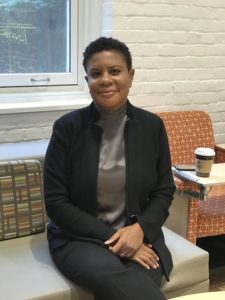
Professor Alondra Nelson, who teaches at Columbia University, came to talk to students about the double helix of genetics and racial justice. Nelson recently released her newest book The Social Life of DNA: Race, Reparations, and Reconciliation After the Genome. (Olivia Howell/B&W Staff)
Genetic ancestry testing is a lot more complicated than going on ancestry.com.
Alondra Nelson, a professor of sociology at Columbia University, discussed the implications of genetic testing during her lecture about the “social life of DNA” on Sept. 11. in the Williams Global Commons.
“People are asking deep and significant and sometimes painful questions about the past and turning to genetic ancestry testing to try to reconcile and resolve things,” Nelson said.
Nelson, originally a skeptic of direct-to-consumer genetic testing, began her research in order to understand the demand for take-home ancestry services.
During her research, Nelson found that African Americans were the pioneers and early adopters of the genetic ancestry testing industry.
There are many uses for genetic tracing, which the National Library of Medicine said can be used to “reconstruct the history of ancient human migration.”
Nelson is particularly interested in genetic tracing as it relates to slavery. She said discoveries made from gene mapping can change lives for African Americans — they can discover their ancestral homelands, which causes many people to rethink or alter their citizenship. Additionally, legal claims about slavery can be made on the basis of DNA evidence.
Nelson started her research on the “social life of DNA” after feeling frustrated by her work during her dissertation. What began as a project has taken Nelson around the United States over the last decade.
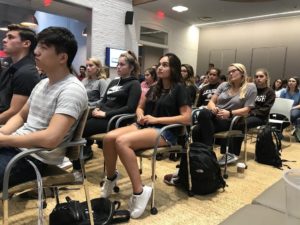
Williams Hall was packed with both students and professors inspired who are inspired by Nelson’s work. Some teachers even offered extra credit to attend this event. (Olivia Howell/B&W Staff)
“I think that one of the things that I learned over the course of a decade is that the legacy of slavery is really profound and there are people in this country who live with that and dwell with that everyday,” Nelson said. “To be invited to a place like Lehigh to share my work, of course is an honor, but this sits me right in the middle of American sociology and American history. I feel a tremendous sense of responsibility to share these stories.”
Attendees left Dr. Nelson’s lecture with a lot to think about.
David Casagrande, the department chair of sociology and anthropology, said he didn’t really know what genetic testing was before he attended the lecture, but now feels encouraged to think more about his own genetic background as an Italian and Polish American.
“It’s really interesting to see how technology can propel a conversation about social justice,” Casagrande said.
In addition to the lecture’s impact on faculty attendees, Nelson’s presentation provided students a supplement to their regular courses.
Barbara Tsaousis, ’18, attended Nelson’s lecture as part of her Bioethics and the Law course.
“I’m definitely glad that we are exploring more of these topics on campus,” Tsaousis said. “The idea that race can, to an extent, be socially constructed based on where you live is a really interesting idea.”


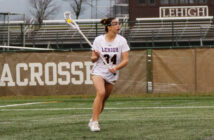
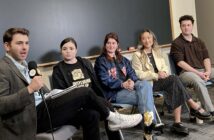
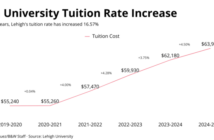
Comment policy
Comments posted to The Brown and White website are reviewed by a moderator before being approved. Incendiary speech or harassing language, including comments targeted at individuals, may be deemed unacceptable and not published. Spam and other soliciting will also be declined.
The Brown and White also reserves the right to not publish entirely anonymous comments.